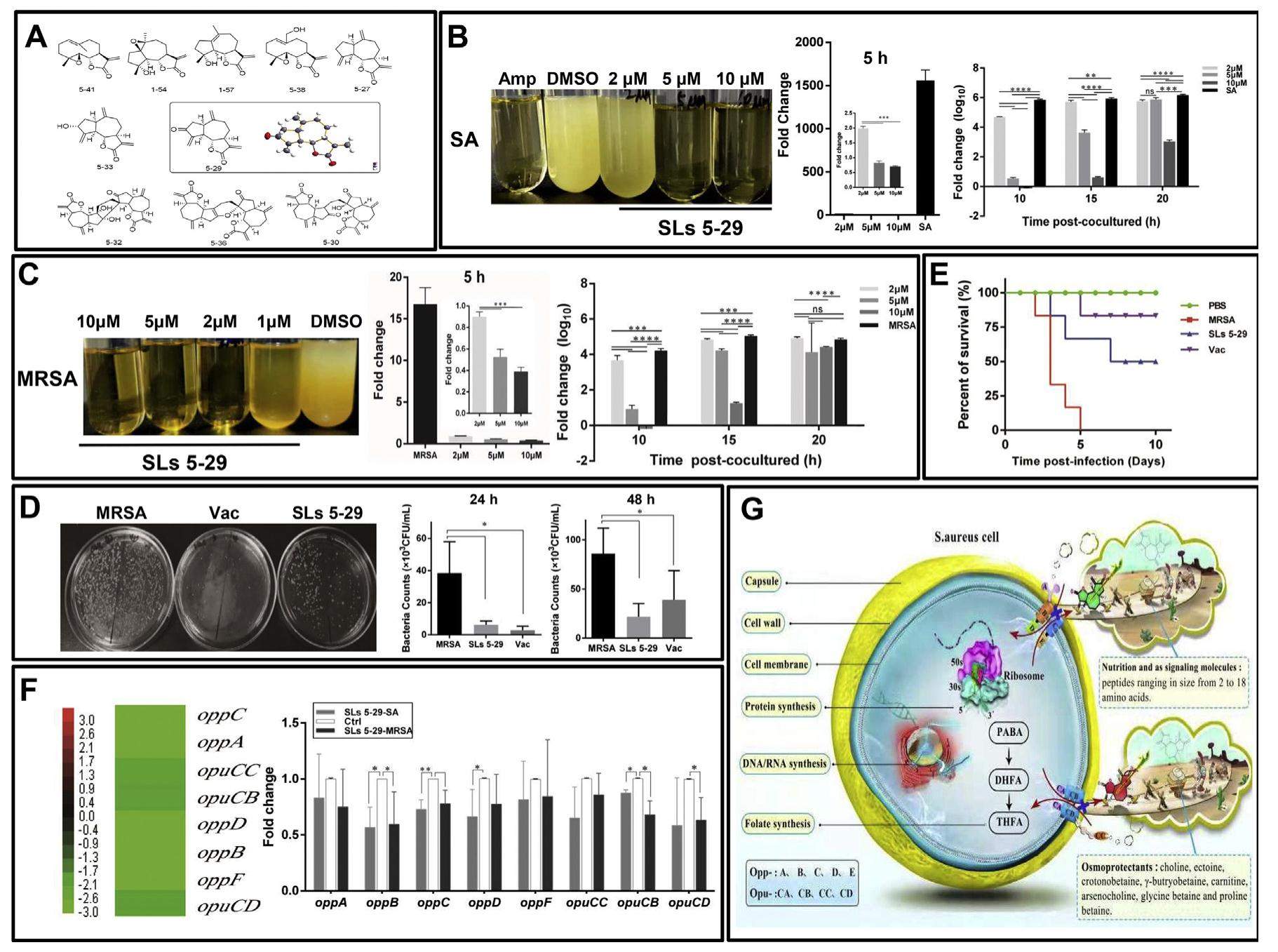
Dehydrozaluzanin C, a novel type of anti-bacterial agent which targets transporting proteins, Opp and OpuC


The evolution and widespread distribution of antibioticresistant elements in bacterial pathogens is eroding our ability to control infections with existing antibiotics. Staphylococcus aureus (S. aureus) and Methicillin-resistant S. aureus (MRSA) have acquired alarming broad-spectrum antibiotic resistance resulting in hospital-and communityassociated infections, which has been responsible for significant morbidities and deaths worldwide. It is estimated that the number of deaths caused by antibiotic resistance may exceed 10 million per year by 2050. This antibioticresistance crisis has promoted an urgent demand for finding new medicines. Unfortunately, antimicrobial drug development is uniquely difficult. Almost all antibiotics in clinical use today were derived from soil microorganisms where they were used for fending off competing bacteria and these were discovered by screening cultivable microbes more than 30 years ago. Here we report a new inhibitor named SLs 5-29 (Dehydrozaluzanin C, DHZ). It inhibits the Opp and OpuC transport systems of S. aureus (ATCC® 25904™) and is a sesquiterpene lactone with a guaianolide skeleton isolated from Vernonia novebaracensis.
